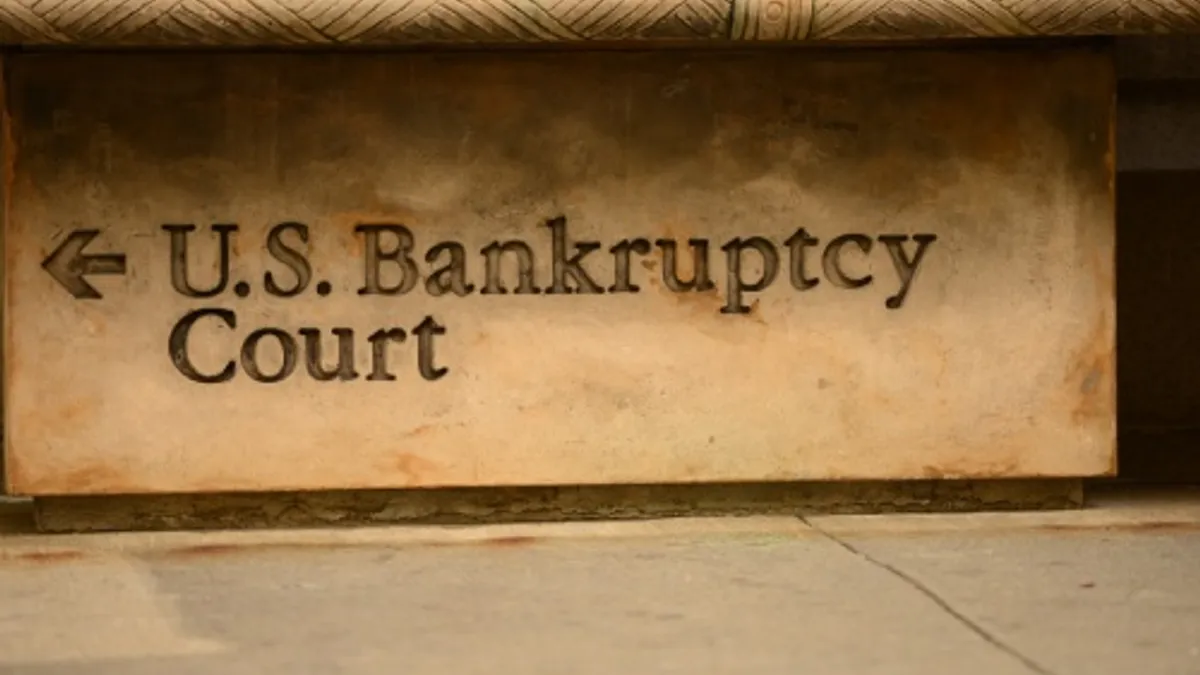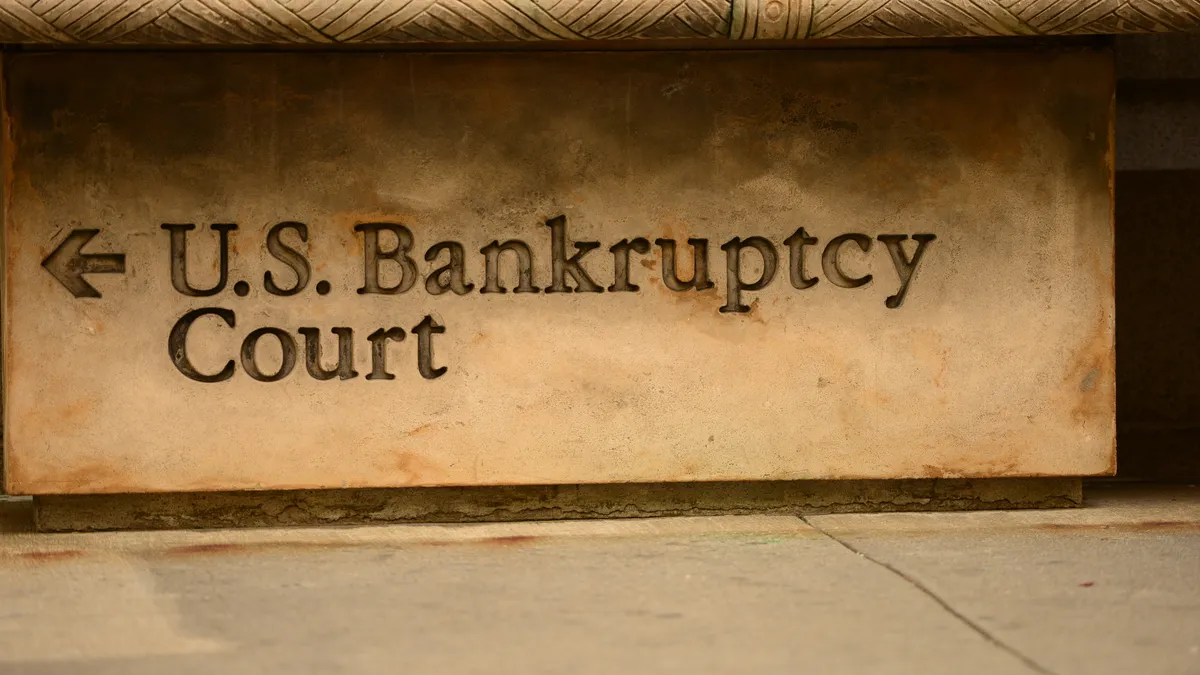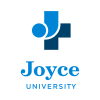The education technology sector could soon have a few more public companies, as an increasingly popular investment trend overlaps with heightened attention to remote learning.
Special purpose acquisition companies, more commonly known as SPACs, are publicly traded firms whose purpose is to raise money to bring an existing private company into the public markets.
They're generally led by people with expertise in a sector who are looking to invest in a company in that realm. They sell shares in their organization, promising investors they'll use the money to select a company and take it public. SPACs were formed to provide an easier path than the traditional initial public offering process, but there are a few caveats, including that they typically have around two years to make a deal before they must return investors' funds.
Ed tech has long attracted private investors, said Jeff Silber, a stock analyst with BMO Capital Markets. And it continues to. Venture capital and private equity funding in the sector reached a record $2.2 billion in 2020, eclipsing the prior year by about 30%, according to EdSurge.
Analysts say the growing interest is fueled in part by the pandemic shifting courses online, boosting the flow of money and services in ed tech. That's given shape to lucrative traditional IPOs like online course platform Coursera's, strong stock performance as with textbook rental and tutoring company Chegg, and fast-climbing private valuations such as that of Guild Education, which connects workers with upskilling opportunities. It's also contributing to SPACs' focus on ed tech.
"You have a lot of people coming to the conclusion that this is something that's not going away — this is the new reality and I want to be invested in it," said Trace Urdan, managing director at investment banking and consulting firm Tyton Partners.
Below, we break down the basics on education SPACs.
How many education SPACs are there?
One count earlier this year by market research firm HolonIQ identified six SPACs targeting the education sector. That's a small slice of the overall global SPAC market, which counted 165 new listings from January to October 2020 alone, according to one analysis. At least three other SPACs have already taken education-related companies public or agreed to do so soon.
There might have been even fewer education-focused SPACs had the pandemic not pushed classes online, drawing attention to the companies whose tools and systems were deployed. But observers expect investors' interest to continue even as instruction moves back into the physical classroom.
"Education hasn't been as mature and hasn't been ready. COVID has accelerated that," said Patrick Brothers, co-CEO at HolonIQ. "Now we see this kind of more attractive, more mature sector combined with an amplified kind of focus on SPACs."
Who's involved in them?
The leaders and top advisers of education-focused SPACs bring experience in various aspects of education as well as finance and regulation.
One of the most prominent education names within SPACs targeting the sector is Michael Moe, an investor whose firm GSV has put money in several well-known ed tech companies, including Guild and Coursera. He helms Class Acceleration Corp., whose board of directors includes James Runcie, chief operating officer of the Federal Student Aid office during the Obama administration, and Lev Gonick, chief information officer at Arizona State University.
Adit EdTech, another SPAC, lists David Shrier, co-founder of Esme Learning Solutions, as its chief executive. Elizabeth Porter, Adit's chief technology officer and secretary, was previously vice president of product at MOOC provider EdX and a co-founder of Esme. And the advisory panel of SPAC EdtechX includes several people with education experience.
What kind of companies could draw their interest?
Education SPACs' goals vary slightly, based on their filings with the U.S. Securities and Exchange Commission.
Class Acceleration Corp. indicated a likely focus on education and entertainment. Adit EdTech Acquisition Corp., said it is eyeing markets including but not limited to international schools, alternative education, vocational training, corporate training and professional upskilling. OCA Acquisition Corp. lists healthcare and education business services companies among its focuses. And EdtechX includes education, training, reskilling, human capital and ed tech as potential targets.
"What investors are looking for is growth," Moe said, pointing to a recent acceleration of activity in the digital learning and education markets.
The size of the market the company is going after could also be a factor. Being able to address a larger number of prospective student segments makes the potential investment more attractive, said Ryan MacDonald, an equity research analyst at Needham.
Within education, areas of focus likely to draw attention include student engagement, career readiness and institutional effectiveness, said James Wiley, principal analyst of technology at research and advisory firm Eduventures.
Colleges' shift online during the pandemic attracted investors' interest, but for many higher education institutions the biggest changes are likely to be temporary. Wiley thinks it may be too early to tell where colleges will land on virtual learning once the pandemic is over. "If higher ed is at a pivot point … what's on the other side of that inflection?" Wiley asked. "That's going to be very attractive to a lot of people investing."
Why aren't there more public ed tech companies to begin with?
Coursera, Chegg and online program manager 2U are part of a relatively small class of U.S.-based public ed tech stocks. While that could mean there are companies and funds waiting to be tapped by education-focused SPACs, it's worth keeping in mind the factors that have kept the numbers small so far.
A big one is the regulatory issues with for-profit colleges over the last decade, which "just kind of tainted the whole sector," Silber said. Even if a technology company had nothing to do with for-profits, he continued, an education focus would have been a deterrent.
The idea of making money off of education can be controversial regardless of whether a company is using public dollars to do so, Urdan said. But "there's a headline risk associated with being public that you don't have in the same way when you're private,” he added.
Education customers of technology products also have not historically been considered fast-movers.
"If you're investing in technology, growth is your mantra," Silber said. Investors aren't eyeing ed tech specifically but rather are looking at technology companies in verticals where they see growth. Ed tech now fits that theme, Silber said.
Still, if a company gets big enough, it will have few options for generating returns for investors besides the public markets, Urdan said. The recent private equity frenzy has raised the threshold at which a company would go public, Urdan noted. Coursera's high valuation relative to its revenue and Chegg's strong performance, in particular, could help set expectations.
"These things feed off each other," Urdan said.
Has any education company gone public through a SPAC yet?
Colleges' increased acceptance of ed tech during the pandemic is ripening those companies for investors.
Nerdy, the parent company of online tutoring provider Varsity Tutors, agreed to go public earlier this year in a SPAC acquisition valued at $1.7 billion. Its buyer is TPG Pace Tech Opportunities, a SPAC organized by private equity firm TPG. An impact fund run by the firm helped launch Arizona State University's InStride workforce development platform a few years ago.
Skillsoft, a digital learning and talent management software company, recently went public in a $1.5 billion deal with SPAC Churchill Capital. And EdTechX last year took public Meten, a China-based language and skills training platform, in a deal that was expected to be worth roughly $614 million.
The leaders of EdTechX, Churchill and TPG Pace are back with new SPACs looking to take companies public.
Education-focused SPACs aren't the only ones that could end up acquiring a company in the sector. TPG's first and second rounds didn't indicate a specific focus on education, according to SEC filings. Churchill's stated focus was also similarly broad.
Brothers points to other SPACs whose mandates could incorporate education, such as the Sustainable Development Acquisition I Corp., which says it aims to advance the United Nations' sustainable development goals.
The reverse could happen, too — a SPAC focused on education could pivot to another industry. "You've got to get a deal done in 24 months," Brothers said. "There's a lot of those sponsors who are hedging their bets and saying, what if we don't find something in education, given it is a niche market? We're going to need to still get something done."
How could more SPAC acquisitions affect colleges and students?
The colleges purchasing technology and services from companies that go public through SPACs, and the students and faculty using them, are a few steps removed from the transactions. But analysts say they could benefit from the transparency required of publicly traded companies.
Coursera's IPO filing documents "shine a real light" on the company and MOOCs generally, Brothers said. The disclosure showed the importance of its partnerships with colleges and companies, and it offered insights on the cost to operate and grow a MOOC, according to Brothers. He didn't think many people were expecting Coursera to say both that it was $67 million in the red for 2020 and couldn't predict when it would be profitable.
"A lot of people think very differently about Coursera … than they did before," he said.






















